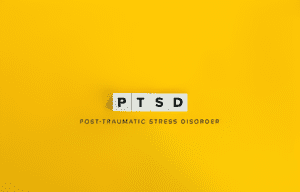According to a World Economic Forum article, therapists use AI to study enormous volumes of patient data, including family histories, patient behaviors, and therapy responses, to help diagnose and identify treatments. Although numerous applications of artificial intelligence in mental health have shown some success, experts say the jury is still out on its general applicability.
A study performed by New York University academics found that AI can help identify post-traumatic stress disorder (PTSD) in veterans. Wearable technologies, such as FitBits, are being utilized by mental health specialists to track sleeping habits, physical activity, and heart rate and rhythm variations, which are used to assess the user’s mood and cognitive condition. The gadgets warn patients and healthcare providers when actions may be required and support users in changing their behavior and seeking help.

Natural language processing AI chat systems are being used to evaluate therapists’ reports and notes and interactions with patients to look for valuable trends. According to the World Economic Forum, researchers want to help therapists create stronger relationships with patients and discover warning flags in patients’ choice of themes and phrases.
With AI’s achievement comes the possibility of abuse. The forum has issued detailed guidelines and prospective AI implementation methodologies. The forum acknowledges present flaws and obstacles in expanding AI in mental health. Using AI chat in therapy, for example, raises the question of whether the technology is optimized for the mental health outcomes of the user or the developer’s profitability, according to the toolkit’s developers.
“Who is ensuring that a person’s mental health-related information is not being used unscrupulously by advertising, insurance, or criminal justice systems?” The authors put pen to paper. “Questions such as these are troubling in the light of current regulatory structure.”
A study by academics at the University of California San Diego in La Jolla warned that distinctions between regular health care and mental health care complicate AI systems.
“While artificial intelligence (AI) technology is becoming more prevalent in medicine for physical health applications, the discipline of mental health has been slower to adopt AI,” according to the study published in the medical journal Current Psychology Reports. “In their clinical practice, mental health practitioners are more hands-on and patient-centered than most non-psychiatric practitioners, relying on softer skills such as forming relationships with patients and directly observing patient behaviors and emotions.” Clinical data in mental health is frequently in the form of subjective and qualitative patient remarks and written notes.”
The World Health Organization (WHO) concludes that predicting AI’s future in mental health treatment is premature. “We discovered that the use of AI applications in mental health research is unbalanced, with the majority of research focusing on depressive disorders, schizophrenia, and other psychotic disorders.” This shows a considerable gap in our understanding of how they might be used to investigate other mental health issues,” noted Dr Ledia Lazeri, WHO/Europe’s regional adviser for mental health, in a paper.




